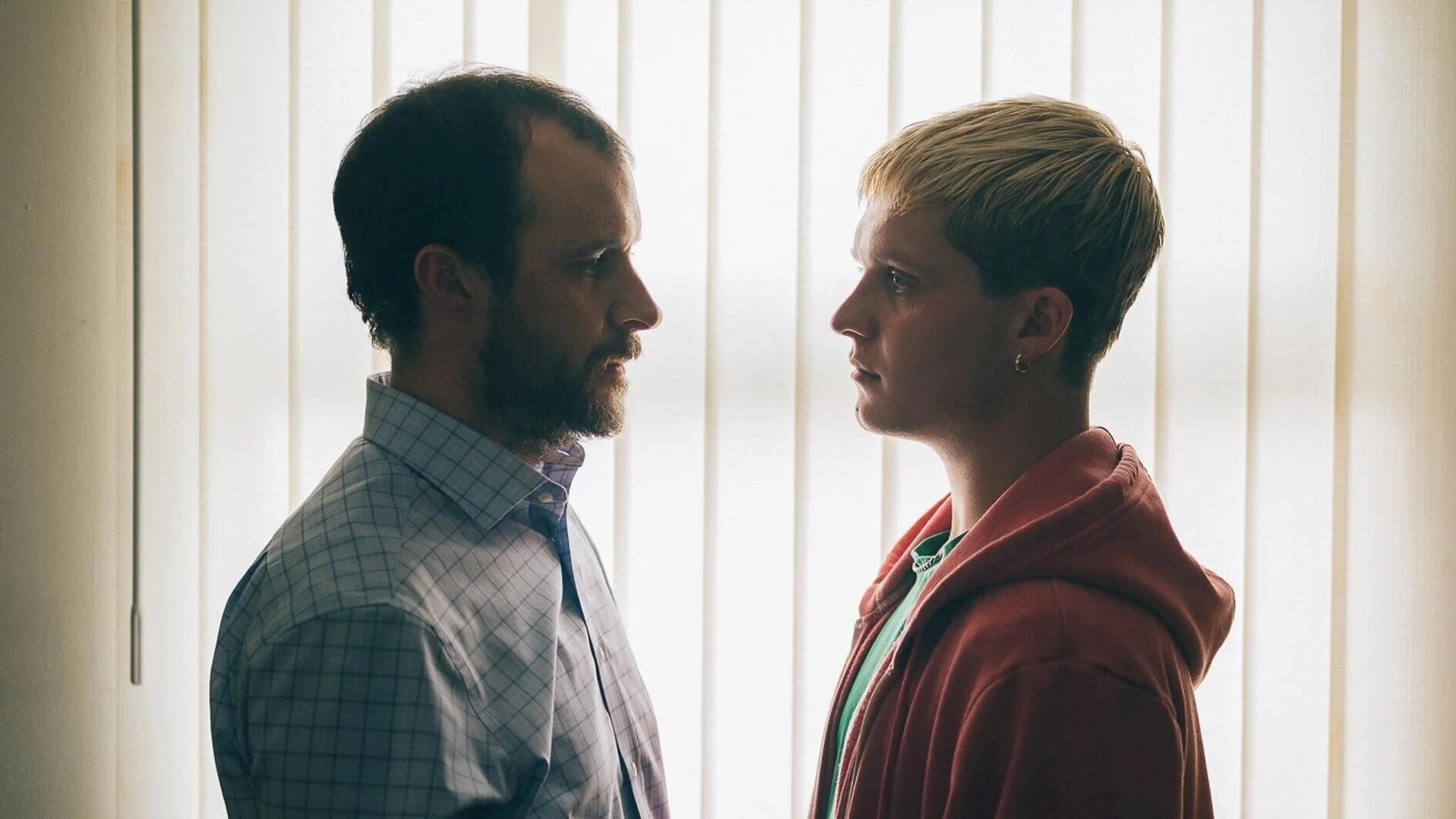Rialto
An Irish work finely directed and no less splendidly acted.
Tom Vaughan-Lawlor and Tom Glynn-Carney
This is the second feature film from Peter Mackie Burns who made his debut with Daphne released in 2017. That London-set film had its admirers and Emily Beecham in the title role was wholly convincing but, since I found Daphne a character with whom I was entirely out of sympathy, that piece kept me at a distance despite its virtues. The set-up in Rialto proves to be very different: first of all, the location is now Dublin (apparently Rialto is a poor district within that city) and, secondly, instead of pivoting on a female character this work is centred on two males, 46-year-old Colm (Tom Vaughan-Lawlor) and 19-year-old Jay (Tom Glynn-Carney).
As adapted by Mark O'Halloran from his own stage play Trade, Rialto shows no obvious sign of its origin and finds Burns on excellent form. Rather like the recent Nocturnal, this is a drama which, despite having a number of subsidiary characters, almost feels like a two-hander since the focus is so intensely on Colm and Jay. However, that never makes the film feel stagey even though it is indeed the case that the play had a cast of two. Here we find Colm living with his wife, Claire (Monica Dolan), and with his two virtually adult children, the sympathetic Kerry (Sophie Jo Wasson) and the prickly younger Shane (Scott Graham). Nevertheless, when we first see Colm we find him picking up Jay in a store toilet, a step that he is taking for the first time. This suggests that only now is Colm acknowledging his homosexual desires but, in contrast, Jay, a young married man, appears to be acting as a male prostitute only to earn much-needed money.
Such a situation could have been played as melodrama and with its candid sex scenes Rialto might have seemed a sordid or even cheaply sensational work. Instead, adopting a naturalistic tone, Burns and O'Halloran offer us a subtle portrait of a man in crisis, a situation added to when Colm after working in the docks for thirty years finds himself facing redundancy. As told here, this is a tale which, however harsh the situation, sees the good in people. Vaughan-Lawlor is utterly persuasive in portraying Colm as a middle-aged man in over his neck as he struggles to come to terms with just who he is. No less tellingly, Glynn-Carney captures Jay's youthful desperation which allows him to blackmail Colm while at the same time suggesting an inner decency overridden by his immediate needs.
These portrayals find Rialto at its best, yet the piece is not without drawbacks. Others may or may not share the difficulty that I sometimes had with the Irish accents, but one certainly feels that characters such as Claire could have been more developed (the excellent Monica Dolan is as splendid as ever but, especially when it comes to Claire finding her situation intolerable, the build-up to that lacks detail in the writing and a scene with Colm's son does seem more melodramatic than the rest). However, the film is well photographed as well as being splendidly acted and it is in many ways an impressive achievement. It concludes with an open ending, a device that can irritate but which here, inviting the audience to draw their own conclusions, works well.
MANSEL STIMPSON
Cast: Tom Vaughan-Lawlor, Tom Glynn-Carney, Monica Dolan, Sophie Jo Wasson, Scott Graham, Michael Smiley, Eileen Walsh, Deirdre Donnelly, Deirdre Molloy, Kervin Soobrayen, Alexandra Smith, Ger Ryan.
Dir Peter Mackie Burns, Pro Valentina Brazzini, Tristan Goligher, Alan Maher and John Wallace, Screenplay Mark O'Halloran, from his play Trade, Ph Adam Scarth, Pro Des Sarah Finlay, Ed Tim Fulford, Music Valentin Hadjadj, Costumes Allison Byrne.
Cowtown Pictures/The Bureau-Break Thru Films.
90 mins. Ireland/UK. 2019. Rel: 2 October 2020. Available in cinemas and on Curzon Home Cinema. Cert. 15.


